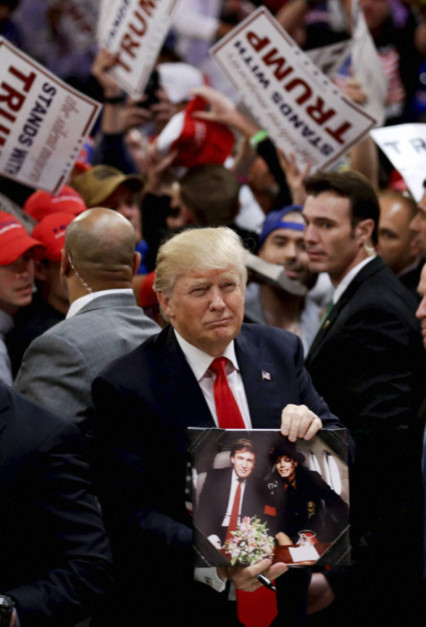
Donald Trump’s sweeping victories last Tuesday night move the Manhattan billionaire a step closer to winning the Republican nomination for American president and to pulling off the most improbable political feat in modern American history. But Trump’s story is about more than a first-time candidate’s stunning rise. It is also about the humiliating defeat suffered by an increasingly isolated political and media class who still do not understand the causes and scope of Trump’s populist revolt.
In his book Coming Apart: The State of White America, 1960-2010, Charles Murray wrote about the rise of a new American upper class and the “narrow elites” who shape America’s economy, culture and government. The number of players who dominate the direction of media, politics and finance is surprisingly concentrated for a country as sprawling and diverse as the United States. And yet almost all of these “influencers” across Manhattan and Washington were incapable of blunting Trump’s meteoric rise. Time and again over the past year, Washington insiders and media moguls misread the mood of working-class voters and their attraction to the populist message championed by Trump.
On Tuesday, that message which undermines Republican orthodoxy on trade, taxes and immigration resonated with GOP primary voters so strongly that Trump cruised to lopsided victories in Pennsylvania, Connecticut, Rhode Island, Delaware and Maryland.
So why did these “narrow elites” miss the mark so badly when the topic turned to Trump? Because most of them are hopelessly isolated from the other 300 million or so Americans who inconveniently share their country.
Murray writes that most members of the narrow elite don’t watch much television. If they watch any news programmes, it is probably the PBS NewsHour (or Morning Joe!). Powerful influencers have also watched other television shows over the past decade like Mad Men, House of Cards, Breaking Bad, Game of Thrones and Curb Your Enthusiasm. While such critically acclaimed shows are often consumed by narrow elites in frantic fits of binge watching, the other 300 million Americans view television a bit differently.
Murray reports that the average American watches about 35 hours of television a week. Since 2004, Trump has starred in 14 seasons of The Apprentice. And if you’re a member of the narrow elite that holds sway over media coverage or government policy, chances are good that you saw few episodes of The Apprentice or Survivor.
But millions of Americans did, and perhaps that kind of mass consumption is why Trump will beat Don Draper at the polls every time.
History may not repeat itself, but it does rhyme when the topic turns to TV careers and Republican politicians. From 1956 to 1962, Ronald Reagan hosted General Electric Theatre and had his image beamed into more than 20 million homes every week. The successful run on TV gave Reagan a connection with American voters that his movie career never could. By the time Reagan ran for governor of California in 1966, the GE host was a household name. Reagan’s landslide victory shocked elites in and out of the political class and launched a conservative revolution that would last a generation.
Fifty years later, that revolution is being undone by another TV star who has been underestimated by elites while being elevated by working-class voters. The question now is whether Trump can prove his critics wrong again by winning the nomination and then defeating Hillary Clinton in the fall. The odds may be long for the New York developer and reality star, but no longer than the ones he faced last June when he first sought the GOP nomination.
— Washington Post
Joe Scarborough, a former Republican congressman from Florida, hosts the MSNBC show Morning Joe.












